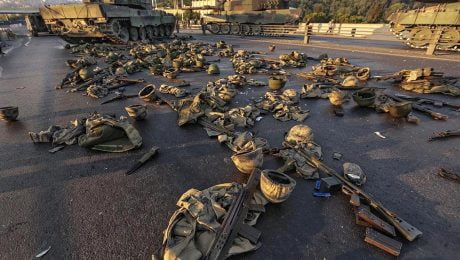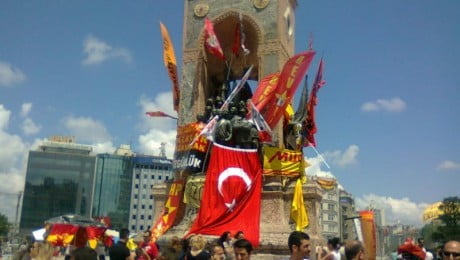Opinions

Of judges and coupists – Recent coup attempt in Turkey
Let me put it on record that I’m one of the few who strongly believe the alleged coup attempt could have been stage-managed to give Tayyip Recep Erdogan the justification to clamp down on real and perceived opponents to his ambition to rewrite the constitution and transfer the centre of executive power from the office of the Prime Minister to the office of the President, which he presently occupies.

Extradite Gülen? Really?
Enter the current coup plot. Erdogan literally has blamed every obstacle, fanciful plot, and malfeasance upon the elderly cleric. He fingered him in last Friday’s attempted coup even before the smoke settled. Increasingly, it seems the Obama administration might actually take the Turkish president seriously.

Turkey Coup Attempt Leaves America With Stark Choice
In the aftermath of Turkey’s attempted, and failed, coup, Washington is primarily concerned about the future of the U.S.-Turkish alliance and its central objective these days: the fight against Islamic State (ISIS). In particular, U.S. policymakers are concerned about the fate of U.S. access to the Turkish airbase at Incirlik, from which assets used in […]

Turkey Faces Its Iran 1979 Moment
Turkey is at a pivotal point in its history following the failed coup attempt of July 15. President Recep Tayyip Erdogan, having survived the coup plot, won fresh legitimacy and gained a new ally: religious fervor in the streets. Mr. Erdogan can use this impetus either to become an executive-style president, or he can encourage the forces of religion to take over the country, crowning himself as an Islamic leader.

Who is Fethullah Gülen, why is the Gülen movement currently being targeted by the Turkish government?
since 2010 the movement and Fethullah Gülen himself have been critical of the authoritarian tendencies in Turkey. It was noticeable during the Gezi Park protests in 2013. The movement began to belong to the increasingly long list of state enemies, according to Erdoğan and the AKP politicians. Different kinds of actions have been directed since then against a so called “parallel state.”

A Mother and Son Flee Istanbul for San Antonio
Before the live feed was cut from the Zaman building on that Friday in March, I watched police shoot rubber bullets into the crowd gathered to protest the paper’s seizure. Bloodied, the crowd retreated, still screaming for free speech but knowing hope was gone.

A Canadian-Saudi’s reflections on Hizmet
We also noted the Turkish people’s respect for each other. Girls in miniskirts mingled easily with those in hijab, and so did people of various faiths. We met priests who appreciated the rights they enjoyed and saw synagogues that were well preserved and attended.

Everything you’ve ever wanted to know about Fethullah Gulen
The Muslim religious scholar from Turkey preaches a moderate form of Islam — one that regards terrorism as blasphemy and a woman’s headscarf as secondary to education. Gulen is also a wanted man. He is accused in Turkey of leading a terrorist organization that has attempted to topple the government. A Turkish court has issued three arrest warrants for him.

A Muslim voice to be heeded
The majority of Muslims openly and loudly reject violent extremism regardless of the religious or ethnic identity of the perpetrator, but that is not what the Western media focuses on. If we closely look into a broad poll, we will see hundreds of Muslim leaders denouncing terrorism, and one of these Muslim voices that we don’t listen to is Fethullah Gülen.























